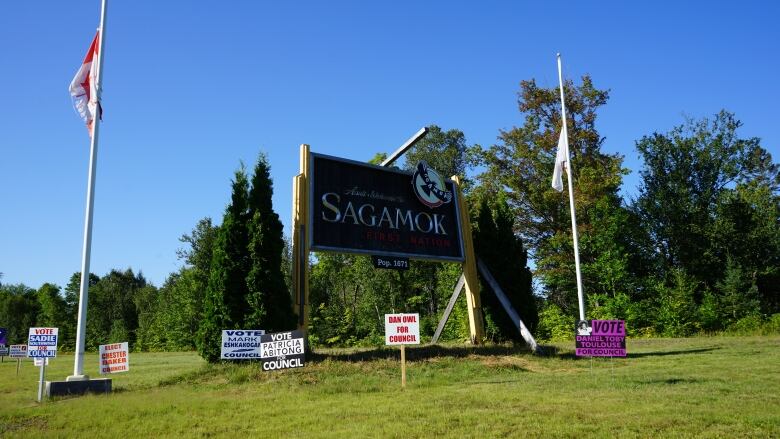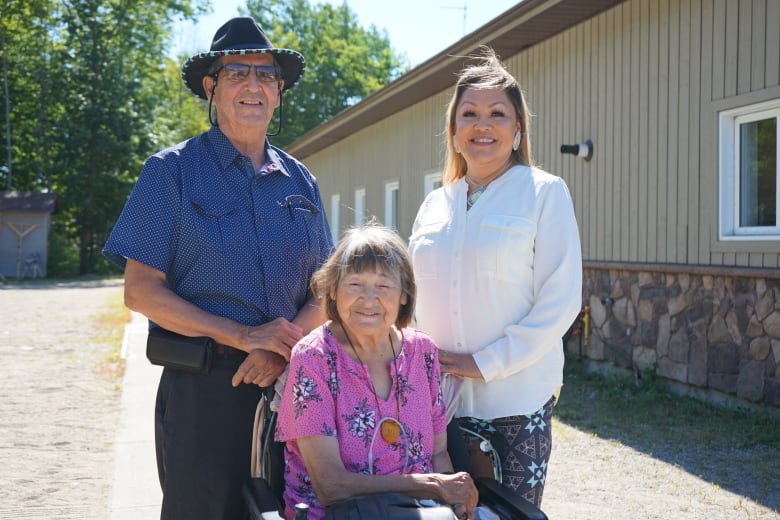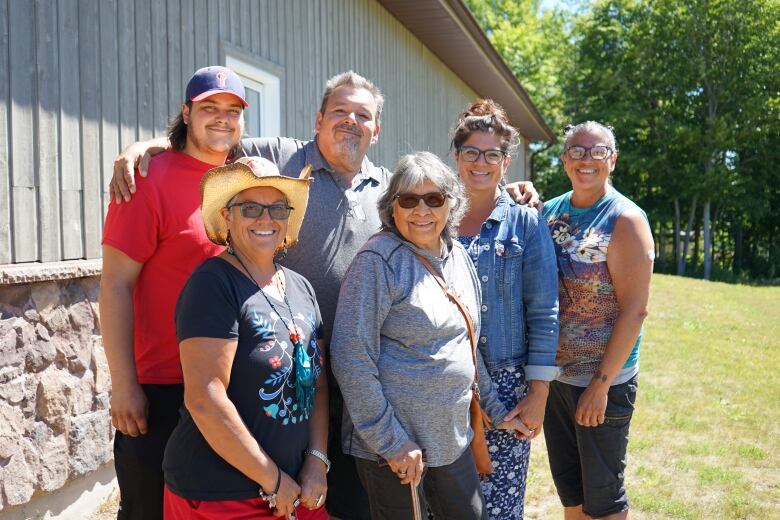Distribution of the $10B Robinson Huron Treaty past annuities settlement finally begins
Communities received their share of the first installment today

It's early Friday morning in Sagamok Anishnawbek and community members are heading to the polls to elect a band council.
It's a big day for this First Nation nestled in the Lacloche foothills just over an hour west of Sudbury. Members are choosing their leadership and they're receiving their share of the historic $10 billion settlement announced last year in the Robinson Huron Treaty past annuities case.
That's money Canada and Ontario agreed to pay after more than a decade of litigation which culminated in a Supreme Court decision ruling the Crown had to make things right after having made 'a mockery' of the treaty over the past 150 years.
The case centred ona failed promise to increase annual payments to the Anishnaabe signatories according to the wealth generated from the land.
The annuities were capped in 1875, and to this day, residents of the 21 Anishnaabe communities in the treaty territory still receive $4 per person per year despite the sizeable profits generated in the mining, lumber and fishing industries.
Planning the distribution of the settlement for past annuities has been a complicated process involving consultations and tough conversations about what should be collective and what should go directly to individuals.
There was also alegal challenge over legalfees threatening to delay the distribution timeline, but the dayhas arrived and the settlement distribution has officially begun.
As Sagamok members filtered in and out of their polling station, there was a lot of talk about the settlement. The distribution wasset to begin at noon, but community members are receiving the money at different times depending on where they bank.

"I'm absolutely hopeful for our community," said Nicole Eshkakogan, a band council member who isn't seeking re-election. "There are so many opportunities here for businesses, planning and well-being."
"For me it's just all going to sit in the bank with a financial adviser," she said. "I will treat myself to a brand new roof for the house."
Concerns money could exacerbate opioid addiction issues
Her uncle and former Sagamok chief and councillor Harvey Trudeau has some apprehensions about the impact the money will have on the community.
"It'll benefit the community in many ways," he said. "But the opioid situation could create some dysfunction."
"We do have programs in the community," added Trudeau. "Hopefully they will increase and provide more services."
John Trudeau, a Sagamok resident running for band council, is also concerned for those living with a substance abuse disorder.
"I've got family members in that situation. How many overdoses are there going to be around here when all this money comes around?" he asks.
Incidentally, the First Nation of 1,300 or so residents held a rally on Friday to draw attention to the opioid crisis after two overdoses were reported last week.
Chester Baker and Tammy Stevens are also hoping to be elected to council. They'd like to bring change to local politics, and see more communication around the Robinson Huron Treaty annuities case.

Both feel the process has lacked transparency and they feel new faces could help rebuild trust.
They still credit the current First Nation government for the tough job of seeing the case through and have already started to dream about what they'll do with their share of the settlement.
"I've been kind of homeless over the years. I want to apply for a piece of land and put a trailer on it," said Baker. "Something cheap and quick so I have a place to stay. I want to leave something to the kids."
Stevens would also like to use the settlement money to put down roots in the community.
Currently living outside of Sagamok, she admits she sometimes feels like an outsider.
"I want to be a part of the community more, and so does my family," she said. "It would be my dream to have a place here and come have our family dinners."












_(720p).jpg)


 OFFICIAL HD MUSIC VIDEO.jpg)
.jpg)



























































































